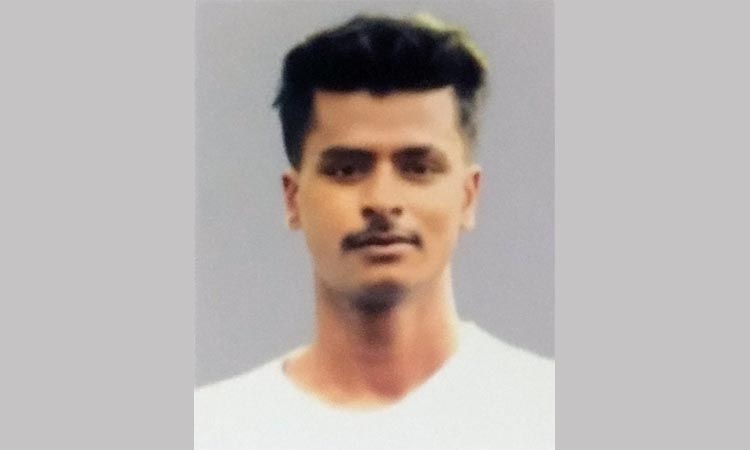News Flash
News Flash

By Syed Altefat Hossain
DHAKA, Feb 11, 2025 (BSS) –Like his father, Md Sabbir Hawlader bid farewell to the earth before his child was born since he sacrificed his life in the July Uprising with a hope to bring beautiful days for the country’s people, toppling nearly a 16-year fascist regime.
Sabbir’s father, Md Zasim Hawlader, died of a stroke suddenly 24 years ago when he was one-month in his mother’s womb, depriving him of enjoying the father’s love forever.
Tragically, Sabbir succumbed to gunshot wounds on August 7, three days after being struck by multiple bullets on August 4 during the Student-People Uprising last year, leaving his eight-month pregnant wife to give birth to their only daughter, Shehja Islam Muntaha, over a month later.
Muntaha got the similar fate of her father to grow seeing how other children are being loved by their father, a feeling she would never experience.
At best she may feel, had her father been alive, she would have received the same affection when she would see a father hugging her daughter.
Sabbir, a 23-year-old bus helper, had to leave this world leaving behind his pregnant wife Meghla Akter, a woman only in 19, and her widow mother Sabina Khatun, who are in her mid 50s.
“My husband died 24 years ago when Sabbir was one-month in my womb. My elder son Jwel was too little at that time. I raised my two sons working in others’ houses while Sabbir could never enjoy his father’s love. Now, my granddaughter gets her father's fate that she can never enjoy her father’s affection too,” Sabbir’s grief stricken mother Sabina said.
Recalling the last memory of Sabbir, she said her son left their rented single-room house at Noakhali Patti in Jurain area of Jatrabari in the city around 10am to join the anti-discrimination student movement in the Kajla area.
Before stepping out, he requested his mother to cook Bhuna Khichuri and chicken curry, saying he would have lunch with his mother returning from the movement.
Sabina, who still works at a students’ mess, said she also left the house for work behind Sabbir.
“Around 11am, when I was cooking for students on the fifth floor, our neighbors went to my workplace and asked me to come downstairs. When I get down, they told me that Sabbir was shot and taken to Dhaka Medical,” Sabina said in a composed tone while she was trying to control her emotion.
Immediately racing to the hospital, she found her son in the intensive care unit (ICU), clinging to life but unconscious. Sabbir was shot multiple times—one bullet hit his head while three others hit his neck, chest, and hand, Sabina recalled with heavy grief.
“See, how my son’s body was riddled with rubber bullets,” Sabbir’s mother wailed, showing a picture of her son.
Fighting for his life for three days, Sabbir breathed his last at the ICU at the time of Magrib prayers on August 7.
“Later, I received my son’s body without a postmortem and laid him to his eternal rest at Jurain Graveyard on the same night,” Sabina said with a heavy heart.
She said she was unaware about Sabbir’s participation in the anti-discrimination student movement.
“I never saw him join the movement. But I think he joined the movement on August 4 as his death might have been written on that day,” Sabbir’s weeping mother said.
The movement succeeded in ousting the nearly 16 years of autocracy in the next day when he was fighting for his life at the Dhaka Medical College Hospital (DMCH), but he couldn’t enjoy the victory of the cause he fought for.
Sabbir’s wife, Meghla Akter recalled that she was staying at her father’s house in the Rishipara area of Sayedabad in the city on that day when tragedy struck. She was supposed to stay there for a week.
“Around 11am, I called my husband, but an unfamiliar person received the phone and disconnected it abruptly,” Meghla said, adding, as hours passed without a return call, a sense of dread grew inside her.
“When Sabbir didn’t back the call even by 5pm, I was returning to our house amid turmoil on the streets. On the way, many people asked me about Sabbir’s condition,” she said, adding, but no one had the heart to tell her the truth.
“When I arrived in front of our house, a brother told me that Sabbir was taken to Dhaka Medical as he was hit by bullets. Entering the gate, however, I found the door was locked,” Sabbir’s mourning wife said in a sobbing tone.
Later, Meghla recalled, she returned to her father's house and informed them about her husband’s condition while her parents went to the hospital forcing her to stay at home.
“The next day, I went to the hospital and found my husband struggling for his life,” she said in a sobbing tone, adding, but he didn’t return from that condition.
“After, my husband’s death, I gave birth to our daughter on September 19,” Meghla said, dubbing her daughter an unlucky one who would never enjoy the love of her father.
Now, Sabina, Meghla, and the newborn baby face a future filled with uncertainty. Sabina’s earnings from cooking for students barely cover their needs. Meghla, with no brothers and no stable support system, continues to live at her father’s house.
“My son was the only breadwinner of our family. I used to support him by working at the students’ mess. But, now we are going through a hardship,” said Sabbir’s mother.
Meghla, however, said they got Taka 5 lakh from the July Shaheed Smrity Foundation, 2 lakh from Jamaat-e-Islami and 1 lakh from As-Sunnah Foundation, which helps them run the family since Sabbir’s death.
The family now demands justice for the loss of Sabbir. Sabbir’s grieving mother and wife demanded capital punishment for the responsible persons.